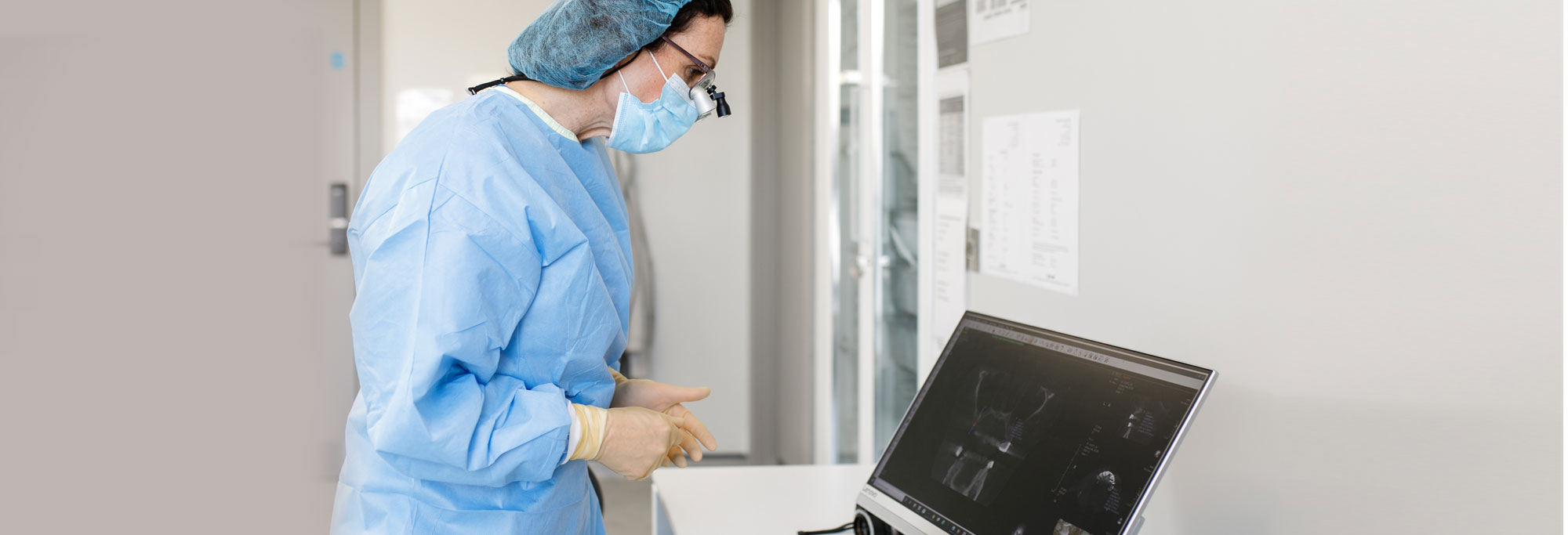
What is this treatment?
TMJ is the treatment required to resolve TMD which are a variety of conditions which affect the jaw joints and muscles. Problems may occur on one or both sides. It is very common. Many people have some signs of TMD but only a small number suffer pain.
Most TMD problems will improve spontaneously over a few months. Treatments vary depending on whether you are suffering from muscle pain, derangement of the joint itself or a combination of both.
Generally treatment is aimed at relaxing the jaw muscles allowing the cartilage disc to return to a normal position. This is known as conservative treatment.
Very occasionally when simple measures don’t work then surgery may be indicated to involve manipulating the joint.

We operate on a dentist referral basis only.
Please speak to your dentist about getting referred to this clinic.

How long does it take?
An initial consultation appointment lasting approximately 20 – 30 minutes will be required. Dental implant treatment time is likely to be approximately 60 minutes but this will vary on the number of implants and each individual patient’s needs.
view pricesWe do not know exactly what causes TMD. For years dentists thought that TMD was caused by the way the teeth and jaws lined up.
However, research has shown that misalignment of the teeth and jaws is not a major case of TMD. Today, we believe that TMD is caused by many things acting together, some of which have little or nothing to do with your teeth. Most discomfort is from overuse of the joints and muscles.
There are many ways this can occur:
- Clenching the teeth together. This may be brought on when you are concentrating or extra busy, worried, annoyed, or even by cold winds.
- Grinding the teeth together. This often occurs at night but can also be during the day.
- Straining the joints and muscles by chewing pencils, biting your nails, holding things in your mouth or by holding the telephone between your neck and shoulder.
- Overworking the muscles by constant chewing e.g. chewing gum all day.
Contact the practice if:
- Jaw pain or soreness that may be worse on waking, or in the evening
- Jaw pain when biting, chewing or yawning
- Clicking from the joint when moving your jaw
- Stiffness or locking of the jaw joint
- Earache without an infection
- Difficulty opening or closing your mouth
- Frequent headaches
You are the key – without your help the treatment will not be effective.
- Your teeth should always be apart. The proper resting position for your jaw is with the teeth slightly apart and your tongue resting gently on the floor of the mouth. This allows your jaw joints and muscles time to rest and heal. You have been shown this position in the clinic.
- Avoid opening your mouth very wide
- Avoid habits like chewing fingernails or gum
- Avoid straining your neck and shoulders by poor posture. This can occur when working at a computer or holding the phone between neck and shoulder
- Eat nutritious foods that do not require hard or prolonged chewing
- Avoid caffeine and smoking. Both of these are stimulants that can make the pain seem worse and increase muscle fatigue
- Follow the exercises provided by your oral surgeon
- Try to give yourself 10 – 15 minutes a day to relax
Remember, be patient.
Nine out of ten TMD patients get better by simple methods alone.
